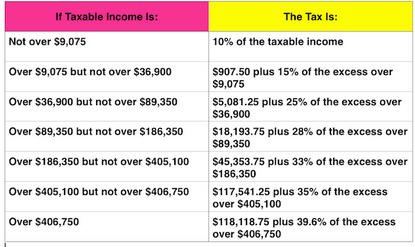Delawaredave5
Full time employment: Posting here.
- Joined
- Dec 22, 2004
- Messages
- 699
So when you do tIRA to Roth conversions, the converted amount is treated as income on your tax return, correct ?
Friend of mine is retired, gets about $10,000 in SS payments, and draws RMD of about $5,000 from tIRA.
So the RMD and SS go into AGI - so the person has $15,000 in income. Any Roth conversions are "extra income".
2014 tax tables show 15% tax on additional income up to $36,900.
So this person surely wants to Roth convert $21,900 to get to $36,900, right ?
Thanks !!!
Friend of mine is retired, gets about $10,000 in SS payments, and draws RMD of about $5,000 from tIRA.
So the RMD and SS go into AGI - so the person has $15,000 in income. Any Roth conversions are "extra income".
2014 tax tables show 15% tax on additional income up to $36,900.
So this person surely wants to Roth convert $21,900 to get to $36,900, right ?
Thanks !!!

